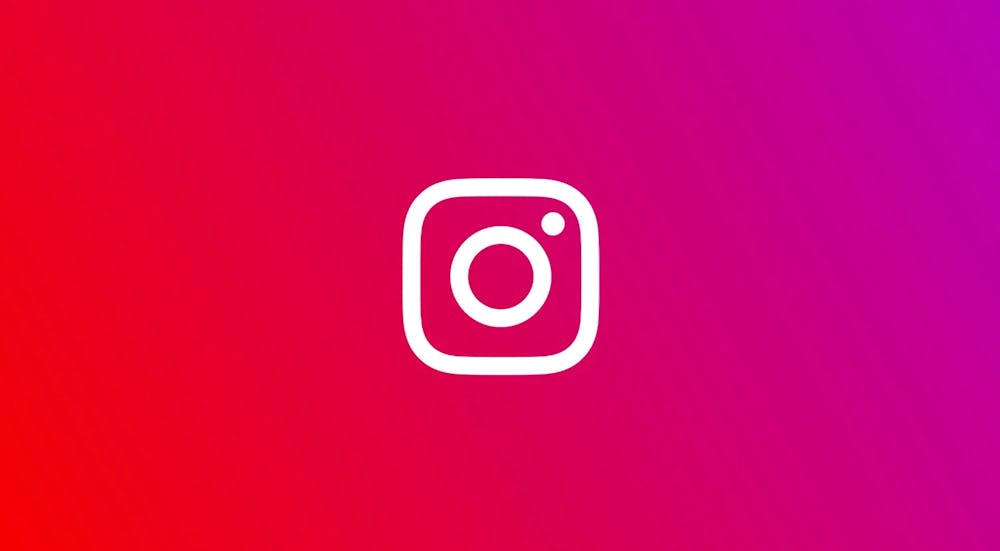About 60% of Americans get their news from digital services, and 42% of 18-29-year-olds prefer to get their news from social media. Despite these statistics, politics and social media have been at odds over the past few months. Not only is Congress actively working toward banning TikTok and other social media platforms they deem to be a “threat,” but now Instagram has introduced its newest feature.
Instagram announced last week that it is tired of the public square being used by people who wish to discuss how they are governed. At least that is the subtext of its announcement that "political content" will have its reach throttled on the platform.
The decision is an overcorrection that comes in response to Washington consistently using social media as a foil for perceived ills. Members on the left and right have both enjoyed hosting rage sessions masquerading as testimony. The most famous of these occurred recently when Facebook and Instagram CEO Mark Zuckerberg was prodded into turning around and apologizing to parents who have lost children to mental illness and were in the audience.
Zuckerberg and his contemporaries who head other platforms are to blame for the pox on many American houses, particularly those affected by mental illness, drugs and sexual abuse, but these congressional circus acts do little to address those problems.
Instead, they have seemed to send a coercive message: “That's a nice social media platform you have there, be a shame if someone regulated it.”
But Congress cannot do much to curtail the First Amendment rights these platforms and their users have. Even if they did, they could not decide on what it is they actually want. Both parties want more of one speech without all that other speech's filler. Cutting the ill-defined “political content” with a blunt knife is not going to reap the reward that Meta is trying to sow.
Do posts about climate change, vaccines or gun crime count as political discourse? Or does it only cross the Rubicon depending on the point of view? These are important questions to consider.
It is not ethical, especially in an election year, because everybody deserves the opportunity to gain information regardless from where it comes. In this day and age, people use social media as a key source of information. Often, people will see something on a social media platform and look it up on the Internet afterward to see the full story or confirm its accuracy. Though some people see the first thing they read and immediately think it is true, many people use social media as an advocate to do more research. By limiting the amount of posts people can see, it reduces the value of news. Social media was created as an outlet for people to post their interests, their opinions and use it to their advantage to reach more audiences. Without the ability to reach several targeted audiences, people will not know what is happening in the world because watching CNN or FOX or reading the Washington Post are no longer the primary first-hand news sources from which people gain information. Do people go to these sources after they see something posted on social media? Sure. However, we need to keep our social media personable and passionate. Is not that literally what engagement rate is for?
The irony of this decision is that it comes while the Supreme Court debates the lengths government can go to influence tech companies to censor content. Democrats blame Zuckerberg for Trump's 2016 win, and Republicans blame him and other platforms for censoring a true New York Post story about Hunter Biden's laptop in the lead-up to the 2020 election. Neither is going to be happy with the result.
The real tragedy will be the blow news outlets take. Social media had given them some semblance of life support after it sucked their main source of revenue -- advertising -- away. While some larger publications struck deals with Meta, Apple and Google, local areas have been left without coverage and are effectively news deserts.
This was honestly a matter of “when,” not “if.” Online spaces have not been centered around information for a while now. Everything is fighting to become the biggest billboard with the blandest user base that anyone can sell to. While this move may not be a violation of anything legal, it does not mean that it is a good thing.
While the First Amendment only applies to prevent government censorship, a privately owned social media company can do what it wants as long as people click that little “I agree to terms and conditions” when they set up their accounts. A problem that is just of general society today is that we are so burnt out by the overload of political news that people have decided they never want to hear about any of it. Instagram is a social media app that most people might use for fun, but social media is also a large news source for those who do not watch it on TV or read a newspaper. Even giving the choice to limit news during a presidential election year is upsetting and something that represents how some are happy and privileged enough to live in a bubble away from current events.
This election year is one of, if not the most, controversial of all time. Limiting information about that seems like some form of control over users. We have to know what is going on with Biden and Trump, but we will not get the detail-oriented, heavy stuff without social media. That is where the process of becoming informed begins for many people today. It is absolutely necessary for people to repost, give their thoughts and provide information for other people. That is how we can spread awareness and facts that most people will not know.



The Slate welcomes thoughtful discussion on all of our stories, but please keep comments civil and on-topic. Read our full guidelines here.